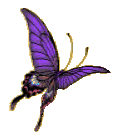Oklahoma Cemeteries Website
Click
here
to break out of frames
This information is available for free.
If you paid money for a
subscription to get to this site, demand a refund.
For any questions pertaining to an individual cemetery, you would need to contact the cemetery sexton / board / caretaker.
LEROY GORDON COOPER JR.
1954 - 2004
Leroy Gordon "Gordo" Cooper Jr., one of the most colorful of the Mercury 7 astronauts, whose exploits and foibles were made famous in the book and movie "The Right Stuff," died Monday at his home in Ventura. He was 77.
The cause of death was not announced, although friends said he had been in failing health in recent years.
"As one of the original seven Mercury astronauts, Gordon Cooper was one of the faces of America's fledgling space program," said NASA Administrator Sean O'Keefe. "He truly portrayed the right stuff."
It wasn't always thought so. An iconoclast given to speaking his mind with little concern for the prim public image the government was trying to foster about the original astronauts, the Shawnee, Oklahoma native was nearly bypassed for the history-making flight of Faith 7, the last of the Mercury missions.
But he proved so cool under pressure that he nodded off while awaiting
blastoff on May 15, 1963. And he was such a good "stick-and-rudder man" that he overcame a series of problems to bring the capsule down manually — and so close to the aircraft carrier sent to pick him up that they didn't need the helicopter to bring him in.
The Mercury program was the United States' first manned space venture and the first step in the country's journey to the moon. All the flights were solo. Cooper, who was slightly built and thus fit well into space capsules, was the last American to fly alone in space.
Cooper's second spaceflight was with Charles "Pete" Conrad Jr. aboard the suspenseful, and even more troubled, eight-day Gemini mission in August 1965. Among the flight's problems were ones that caused the craft to roll. Yet it stayed in orbit for 191 hours and traveled 3.3 million miles, establishing a space endurance record.
NASA said space program veterans remembered Cooper as a man who "always had a smile on his face." In "The Right Stuff," actor Dennis Quaid played the cocky astronaut.
"He never said, 'You can't do it.' He was gung-ho on everything," said
Norris Gray, a NASA preparedness officer during the Mercury program in the early '60s.
O'Keefe said that Cooper's efforts and those of his fellow Mercury
astronauts — Alan Shepard, Virgil "Gus" Grissom, John Glenn, M. Scott Carpenter, Walter Schirra Jr. and Donald "Deke" Slayton — "serve as reminders of what drives us to explore."
Of the original seven, only Glenn, Schirra and Carpenter are still alive.
Cooper was born March 6, 1927, the only son of Leroy Gordon Cooper Sr., an Air Force colonel who befriended Amelia Earhart, according to accounts of Cooper's life. The younger Cooper, an admirer of the science fiction character Buck Rogers, was taking the controls alone by the time he was 7. He served in the Marine Corps, then became a fighter pilot after World War II.
In the late 1950s, Cooper was a test pilot at Edwards Air Force Base in the Mojave Desert before being selected from 110 volunteers to join the new space program in 1959 — a couple of years after America had been humiliated by the Soviet Union's launch of the Sputnik I satellite. He signed up out of "plain curiosity," he said later.
To his disappointment, the Gemini flight was Cooper's last venture into
space. He served as a backup command pilot for Apollo 10 in May 1969 but never went to the moon. He left NASA and retired from the Air Force in 1970.
In his 2000 autobiography, "Leap of Faith: An Astronaut's Journey Into the Unknown," he recounted, in his typically unabashed way, a visit with President Kennedy in the Oval Office. After hearing some of Cooper's buddies kidding him about his relationships with women, Kennedy, he claimed, got up from his rocking chair and approached him. "You and I have the same problem," Kennedy whispered, Cooper reported.
In the book, Cooper also embarrassed some of his old NASA colleagues with tales of UFO encounters and conspiracy theories. Claiming that film that he shot from Gemini 5 had been confiscated, he quoted President Johnson telling him, "Son, I ordered it classified."
In 1978, he asked a U.N. panel to coordinate data on UFO encounters "to determine how best to interface with these visitors in a friendly fashion."
Cooper had a wide range of interests; a NASA biography listed his hobbies as treasure-hunting, archeology, racing, flying, skiing, boating, hunting and fishing. In his later years, Cooper designed and tested aircraft and engine types in Southern California, NASA said, working out of an office at Van Nuys Airport.
Even many years after leaving NASA, Cooper never gave up his love for outer space. He continued to argue that America should go back to the moon and beyond, to Mars.
Asked in a Times profile in 1993 what he would say to people who say we
can't afford the cost of manned flights to other planets, he replied, "Well, I think that's really a pessimistic attitude."
Among his numerous awards were the Air Force Legion of Merit, the
Distinguished Flying Cross, NASA's Exceptional Service Medal, the Collier Trophy and the Harmon Trophy.
"Gordon Cooper's legacy is permanently woven into the fabric of the Kennedy Space Center," center director Jim Kennedy said Monday. "His achievements helped build the foundation of success for human space flight that NASA and the Kennedy Space Center have benefited from for the past four decades."
Cooper, who was divorced from his first wife, is survived by his wife,
Susan, and four daughters.
By: John Johnson, Times Staff Writer
Published October 5, 2004.
|Pottawatomie County Miscellaneous Obituaries| |Pottawatomie County Cemeteries| |Home|
This site may be freely linked, but not duplicated in any way without consent.
All rights reserved! Commercial use of material within this site is prohibited!
© 2000-2025 Oklahoma Cemeteries
The information on this site is provided free for the purpose of researching your genealogy. This material may be freely used by non-commercial entities, for your own research, as long as this message remains on all copied material. The information contained in this site may not be copied to any other site without written "snail-mail" permission. If you wish to have a copy of a donor's material, you must have their permission. All information found on these pages is under copyright of Oklahoma Cemeteries. This is to protect any and all information donated. The original submitter or source of the information will retain their copyright. Unless otherwise stated, any donated material is given to Oklahoma Cemeteries to make it available online. This material will always be available at no cost, it will always remain free to the researcher.





